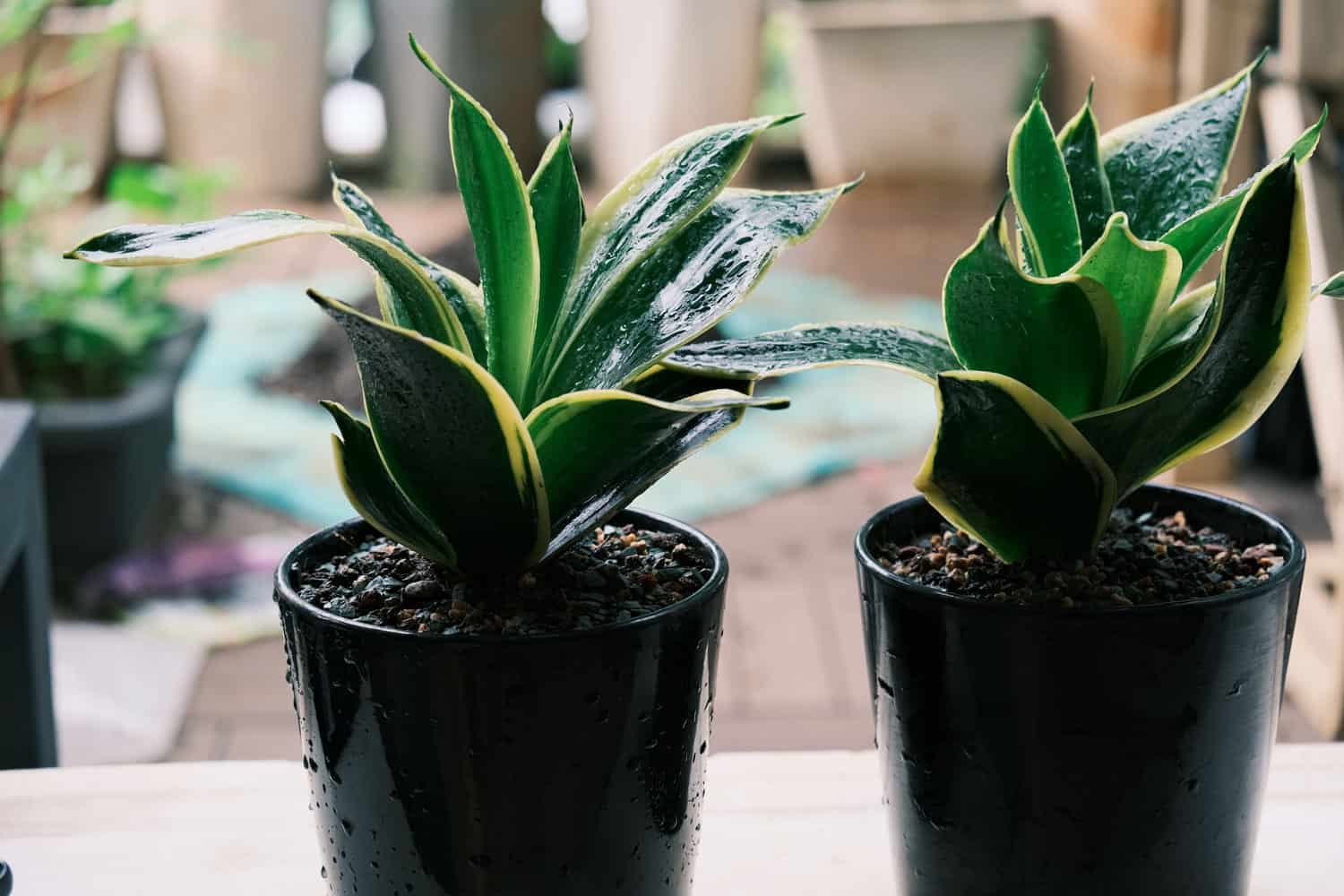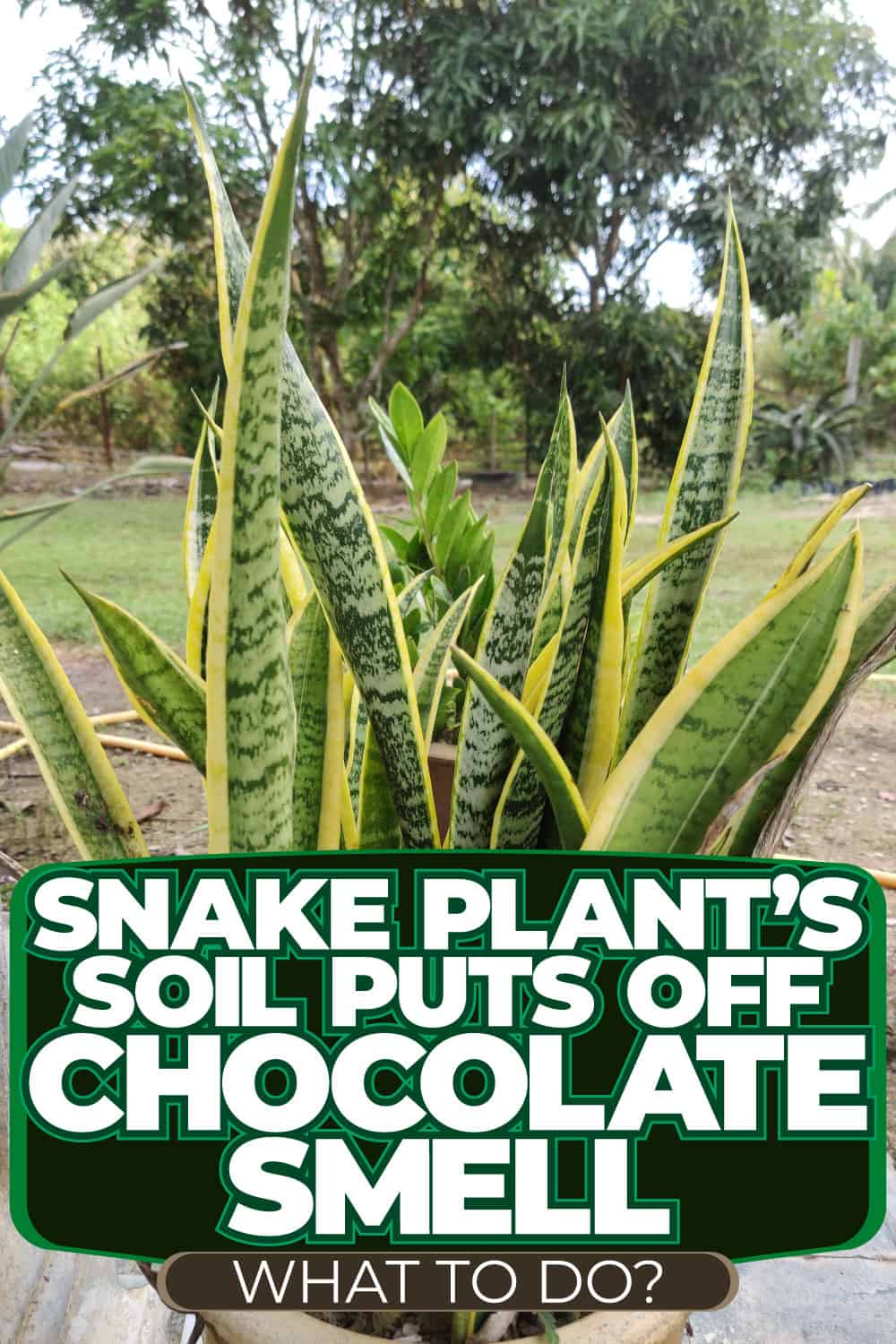Have you ever leaned in to admire your snake plant and caught a whiff of something unexpected, like chocolate?
It's not something you hear about every day with plants, so it's definitely a unique twist in the world of indoor gardening.

In this article, we'll discuss why your snake plant's soil might be putting off a chocolate scent and offer some practical tips to ensure your plant stays healthy and happy.
Understanding Soil Composition and Aromas
The intriguing aroma of your snake plant's soil could be due to several factors at play.
Some soils have natural organic materials that can produce a variety of odors, ranging from earthy to sweet scents.
It can also be due to a specific type of bacteria known as Streptomyces. These bacteria release a compound called geosmin, known for its earthy, sweet-like scent.
In some cases, specific soil components, especially mulch, such as coco coir, pine bark, or cocoa bean hulls, may contribute to a pleasant odor.
Cocoa bean hulls, in particular, are known for their sweet, chocolate-like scent and can be a significant factor in creating a chocolate aroma in your snake plant's soil.
While soil aromas can be captivating, monitoring your snake plant's health is essential. Ensure proper watering, check the soil condition, and ensure your plant has a sufficient light source.
Are you noticing a funky smell in your snake plant? Learn what causes this by reading our extensive guide on the topic.
Why Does My Snake Plant Soil Smell Like Chocolate?
We’ve done our research, and while there isn’t any scientific evidence that suggests why there might be a chocolate smell in your snake plant soil, there are a few plausible explanations.
Healthy Microbial Activity
The chocolate-like smell could be a result of microbial activity in the soil.
Beneficial microbes, such as Streptomyces, are known for producing geosmin, which imparts an earthy aroma to the soil.
While geosmin itself does not have a chocolate-like scent, its earthy qualities might combine with other organic compounds in the soil to create a unique aroma.
Organic Matter Decomposition
As organic materials in the soil break down, they can release various compounds and aromas.
Some of these might coincidentally resemble the smell of chocolate, especially if the soil contains certain organic amendments or compost.
Natural Soil Compounds
Soils are complex mixtures with numerous natural compounds that may produce unique scents under certain conditions.
The combination of these compounds and the specific conditions in your snake plant's pot might create a chocolate-like aroma.
Plant Root Exudates
Sometimes, the roots of plants secrete various compounds into the soil. These exudates can influence the soil microbiome and potentially contribute to its scent.
Depending on the specific exudates and the microbial response, this could result in various aromas, possibly including one reminiscent of chocolate.
Cocoa Bean Hulls as Mulch
Consider whether you have used cocoa bean hulls as mulch in your snake plant's pot.
These hulls, a byproduct of cocoa bean roasting, are known for their sweet, chocolate-like aroma and are commonly used as organic mulch.
They break down slowly, enriching the soil with nutrients and reducing soil compaction, making them suitable for indoor plants like snake plants.
However, you should manage moisture carefully to avoid attracting pests and be aware that these hulls contain compounds toxic to dogs.
It's possible that the chocolate scent of the cocoa bean hulls might be contributing to the aroma in your snake plant's soil.
Should I Be Worried If My Snake Plant Smells Like Chocolate?
Encountering a chocolate-like smell emanating from your snake plant soil may raise concerns, but it's generally not a reason for alarm.
As we've shared, this unique scent, while unusual, can often be attributed to benign and natural processes occurring within the soil.
If you're still worried, here's what you should consider:
Assessing Plant Health
First and foremost, examine the overall health of your snake plant. Look for signs of vigor, such as strong, upright leaves and consistent growth patterns.
If the plant displays no signs of distress, such as wilting, discoloration, or rotting, the peculiar scent is likely not indicative of a problem.
For more details on assessing your snake plant’s health and understanding potential issues, here are some signs your snake plant needs help.
Monitoring Watering Practices
Overwatering can lead to issues like root rot, which may produce unpleasant odors.
Ensure that your watering schedule is appropriate for a snake plant, which typically requires less frequent watering. The soil should be allowed to dry out between waterings.
Checking Soil Condition
Inspect the soil for proper drainage and aeration. Compact or waterlogged soil can create anaerobic conditions, leading to undesirable smells.
Consider repotting with a well-draining mix if the soil seems overly dense or water-retentive.
Observing for Pests or Diseases
Although a chocolate-like smell is not a common indicator of pests or diseases, regularly checking for any signs of infestation or illness, such as damaged leaves or stems, is still a good idea.
Could Chocolate Smell Ever Be a Cause of Concern?
It might be worth investigating further if you notice any adverse changes in your plant's health or if the scent becomes increasingly unpleasant or overpowering.
This could involve changing the soil, adjusting the plant's environment, or consulting a horticultural expert.

